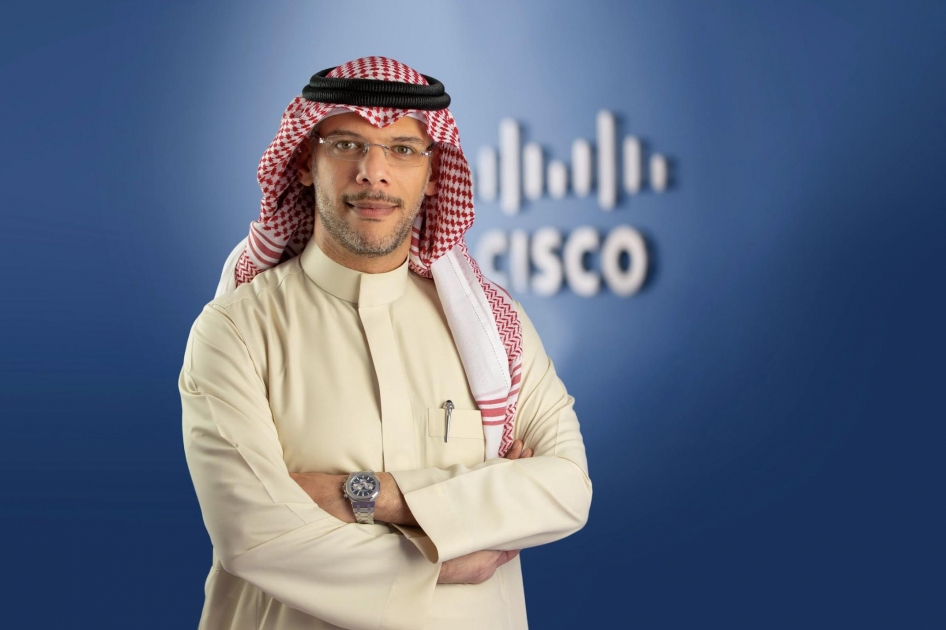
Major Industry’s Shift: Infrastructure is Critical for the AI era as KSA Advances Vision 2030
Ahead of its flagship event in Riyadh “Cisco Connect – CXO Edition”, Cisco has revealed key local findings from its global networking study, highlighting how AI and modernized networks are driving fundamental changes in enterprise infrastructure. As AI assistants, agents, and data-driven workloads reshape how work gets done, they’re creating faster, more dynamic, more latency-sensitive, and more complex network traffic.
The rise of connected devices, 24/7 uptime demands, and growing security threats are pushing infrastructure to adapt and evolve. IT leaders are rethinking networks—what they do, how they enable growth, and how they protect businesses. The network they build today will decide the business they become tomorrow.
Salman Faqeeh, the Managing Director of Cisco in Saudi Arabia, commented: "Our research highlights a critical shift in network architecture that aligns with Saudi Arabia’s focus on innovation. The AI era relies on ultra-fast, low-latency, and highly secure networks, and KSA is leading the way by building the AI infrastructure of the future. At Cisco, we are proud to partner with Saudi Arabia to develop networks that will drive the Kingdom’s ambitious Vision 2030 goals."
Key Insights: The Future of Networking in Saudi Arabia
- The network has become a strategic priority: all participants say a modernized network is critical to rolling out AI, IoT, and cloud. 94% of IT leaders plan to increase the share of their overall IT budget allocated to networking.
- Secure networking is mission critical: 98% say secure networking is important to their operations and growth; 65% say it’s critical. 97% believe an improved network will enhance their cybersecurity posture.
- AI intensifies demand for resilient networks: 97% say a resilient network is critical, at a time when 73% faced major outages in the past two years – driven largely by congestion, cyberattacks, and misconfigurations.
- Leaders look to AI to grow revenue: 52% say a modernized network’s greatest impact on revenue will come from deploying AI tools that automate and tailor customer journeys – enabling faster, more personalized experiences that can strengthen loyalty and drive growth.
- AI is reshaping computing infrastructure: 67% say their data centres can’t yet meet today’s AI demands, and 90% plan to expand capacity – on-prem, in the cloud, or both.
- Leaders want to make networks smarter: 98% say autonomous, AI-powered networks are essential to future growth – yet only 40% have deployed the intelligent capabilities – like segmentation, visibility, and control – to make their network adaptive.
The Network is the Value: Modern Infrastructure Unlocking Growth and Savings
IT leaders in KSA are already delivering financial value from today’s networks: largely by improving customer experiences (61%), boosting efficiency (62%), and enabling innovation (54%). But much of that value is at risk if it comes from infrastructure that hasn’t been designed for AI or real-time scale.
The Path Ahead: Bridging the Gaps
To unlock the full growth and savings they expect, IT leaders in KSA have identified critical gaps they must close:
- Breaking Down Silos: 62% cite siloed or partially integrated systems as a major challenge.
- Scaling Deployments: 42% say incomplete implementations are holding them back.
- Reducing Manual Oversight: 39% highlight the need for greater automation and intelligent management.
Smarter, more secure, more adaptive networks are the business case for investment.
92% say improved networks will directly drive revenue, and 97% expect meaningful cost savings – driven by smarter operations, fewer outages, and lower energy use.





























